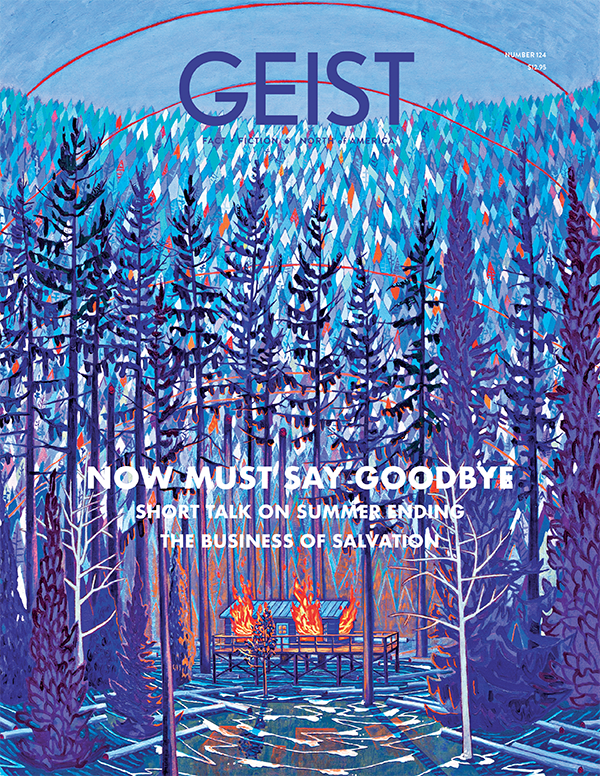
Oil People Paperback Out Sep 23
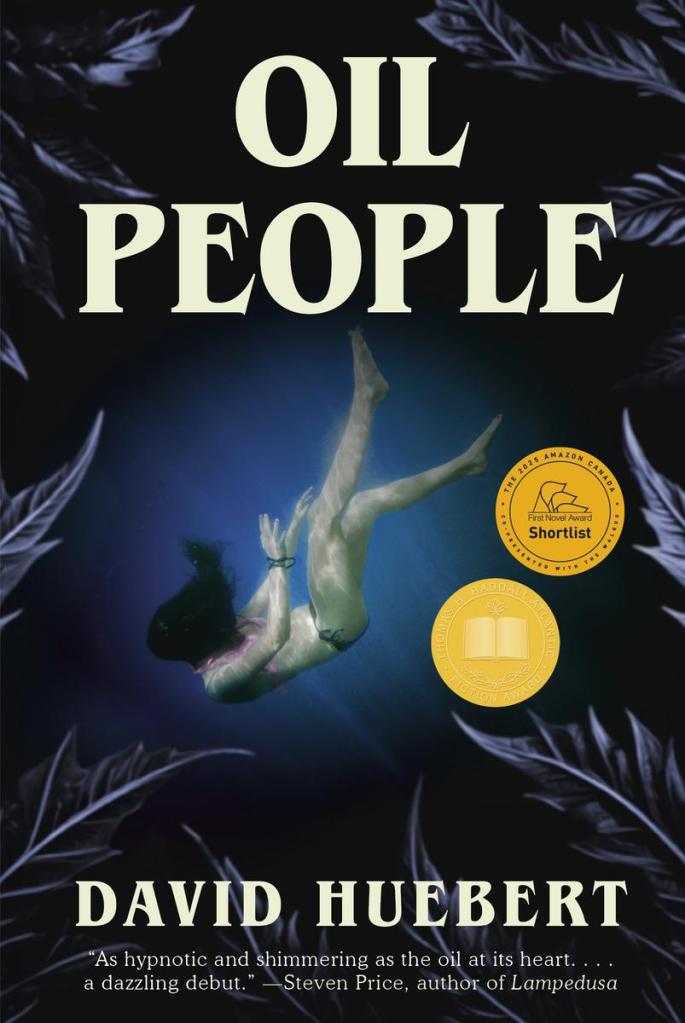
The paperback for Oil People is out September 23, with a snazzy new cover designed by Dylan Browne at Penguin Random House. Can’t wait to see it on the shelves.
I have a few upcoming events to celebrate:
Oct 16-18, Lit Youngstown (Ohio): https://www.lityoungstown.org/2025-festival-details
Nov 8, Afterwords Festival (Halifax): https://afterwordsliteraryfestival.com/product/saturday-afternoon-at-the-carleton-2025/
& more in the works!
Oil People wins Thomas Raddall Atlantic Fiction Award
I’m delighted to announce that Oil People is the recipient of the 2025 Thomas Raddall Atlantic Fiction Award. The award was initiated by celebrated Nova Scotian author Thomas Head Raddall, who created the prize to give one writer “the gift of time and peace of mind.” The award is administered by the Raddall family, who reside on Nova Scotia’s South Shore, and to whom I am deeply grateful.
I’d like to congratulate the four other authors who were finalists for this year’s award: Mark Blagrave, Susie Taylor, Charlene Carr, and Carol Bruneau.
I am profoundly grateful to the jury, consisting of Sarah Butland, Dian Day, and William Ping. Here’s what the jury had to say about Oil People:
“Oil People is a story to savour, not devour. Huebert’s debut novel yields much like the earth drilled by one of its main characters, demanding time and attention, focus and forgiveness. It challenges the norm, delicately balancing the good and the bad within the oil industry, through a story that travels across generations, along family lines, through river and over land.Oil People will start conversations, change perspectives, challenge opinions, and it will do it all with mind-bendingingly poetic language. With a long view that includes the past, present and future, Oil People gives us an opportunity to begin to understand the impact of our ways.”
It’s one of the loveliest statements I’ve ever received about my work. Oil People comes out in paperback next month.
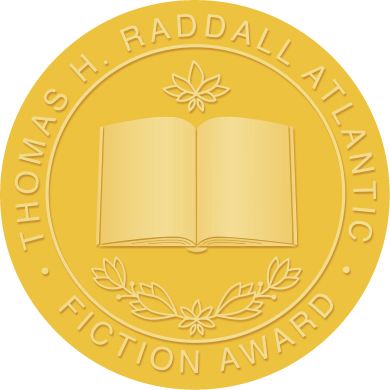
Oil People Shortlisted for Amazon Canada First Novel Award!
I’m so very thrilled that Oil People has been shortlisted for this incredible award for debut novelists in this country. I’m very grateful to the jury, and thrilled for all shortlisted authors. I’ll be heading to Toronto to celebrate the shortlist. Plus the event at the Globe and Mail Centre in Toronto falls the day after my birthday (a big one). Can’t wait for this book party.
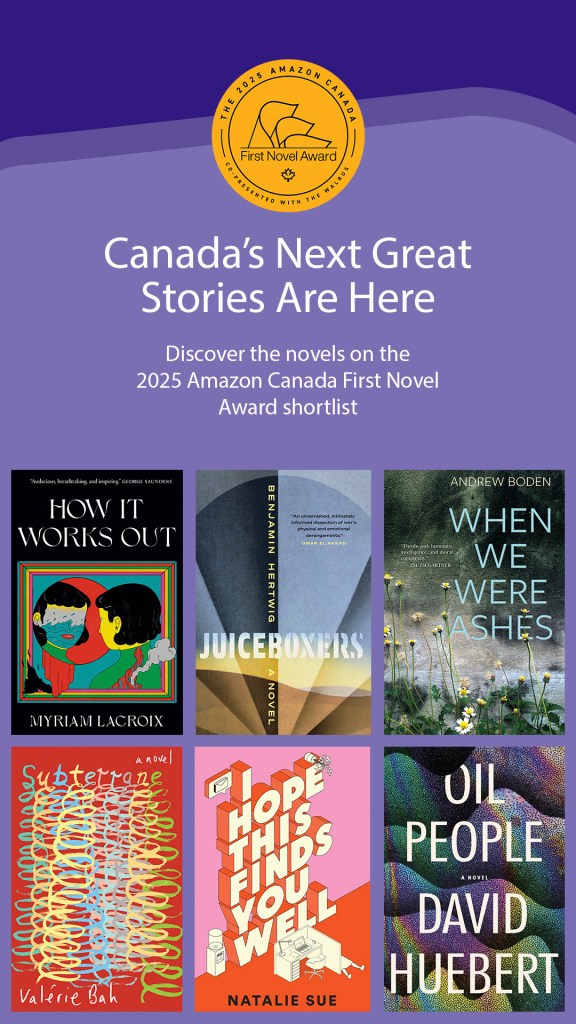
Oil People shortlisted for Thomas Raddall Atlantic Fiction Award!
Oil People Finalized November Tour Dates
Hello! There’s been a little re-shuffling to the tour, so I’m posting a list of finalized tour dates for the coming week. I’m so grateful to all the organizations that are hosting me and helping to make this happen. This tour has been enabled with the help of a grant from Arts Nova Scotia.
-Nov 1: 5:30 p.m. London, TAP Centre for Creativity (203 Dundas Street); a words festival event, in conversation with Joshua Lambier.
-Nov 2: 3:00 p.m. Indigo, Kitchener-Waterloo (225 Fairway Road South)
-Nov 3: 10:00 a.m.-12:00 p.m. Kitchener-Waterloo, Wild Writers’ Festival’s Literary Brunch, Grey Silo Golf Club, with Helen Humphreys and Carol Off
-Nov 4: 8 p.m. Peterborough, Trent University, in conversation with Dr. Brent Bellamy. 101 Scott House, Traill College, 315 Dublin Street, Peterborough.
-Nov 5, 7 p.m.: Pulp Books, Montreal, with francesca ekwuyasi & DW Wilson. 3592 Ave Wellington, Montreal, QC.



Oil People Tour
Oil People is out today and available for purchase! So happy to have this dark dreamy book meet the world. I’ll be promoting it across Ontario and the Maritimes this fall. Hope to see you at one of the following events. Follow me on socials for more details! (X: @davidbhuebert / insta: david.huebert / Facebook: David Huebert).

DISCOUNT: pre-order Oil People
Hey hey! The lovely folks at the indie King’s Co-op Bookstore are offering a discount for pre-ordering Oil People, my debut novel coming in August from McClelland & Stewart. Get it while it’s hot!
Through the summer and fall, I’m available for classroom visits and other public appearances, so please do drop me a line (davidhuebert1@gmail.com) if you’re interested in a talk on oil in literature, a workshop on Dirty Nature Writing, or a good old fashioned reading and Q&A. I’ll be touring Ontario in early September and late October.
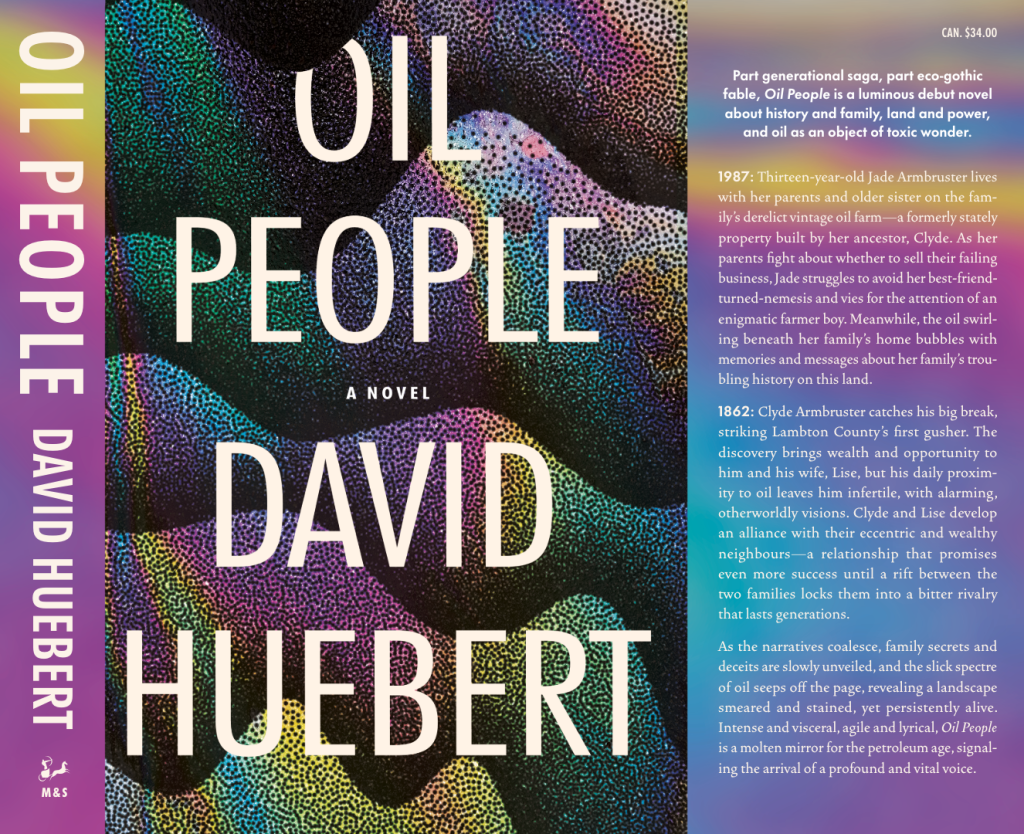
Preorder Oil People!
After many years of research, writing, and editing, my debut novel, Oil People, is now ready for preorder! I’m very grateful to my editor, Joe Lee, as well as M&S Publisher Stephanie Sinclair, and all the other love labourers at McClelland & Stewart. The book’s beautiful cover (below) was designed by Dylan Browne. I can’t wait for August, when book meets world.
I’m available for classroom visits and other public appearances, so please do drop me a line (davidhuebert1@gmail.com) if you’re interested in a talk on oil in literature, a workshop on Dirty Nature Writing, or a good old fashioned reading and Q&A.
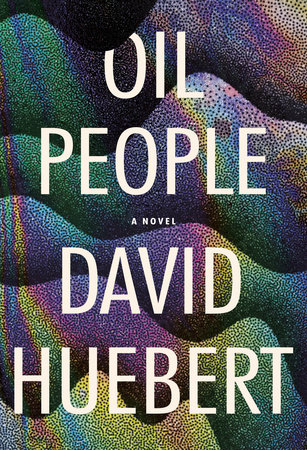
New Publications
I’m thrilled to have two new publications out this fall. First, I’ve had my essay “Flesh Made Burn: A Vasectomy Revenant” included in Best Canadian Essays 2024, published by Biblioasis and edited by Marcello Di Cintio. The essay is a reflection on family, procreation, masculinity, and voluntary self-sterilization. When this piece was first published in The New Quarterly, the magazine’s Editor-in-Chief Pamela Mulloy told me it was the first vasectomy memoir she’d ever read. I’m grateful to have my essay selected by such an intelligent writer and included in such wonderful company. You can buy the collection from the publisher.
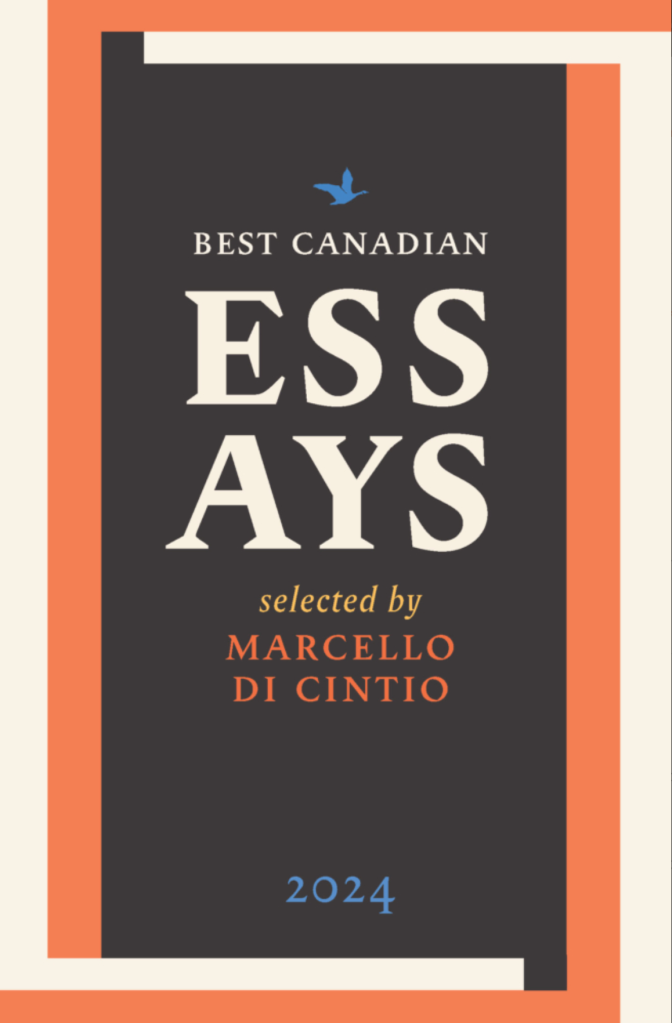
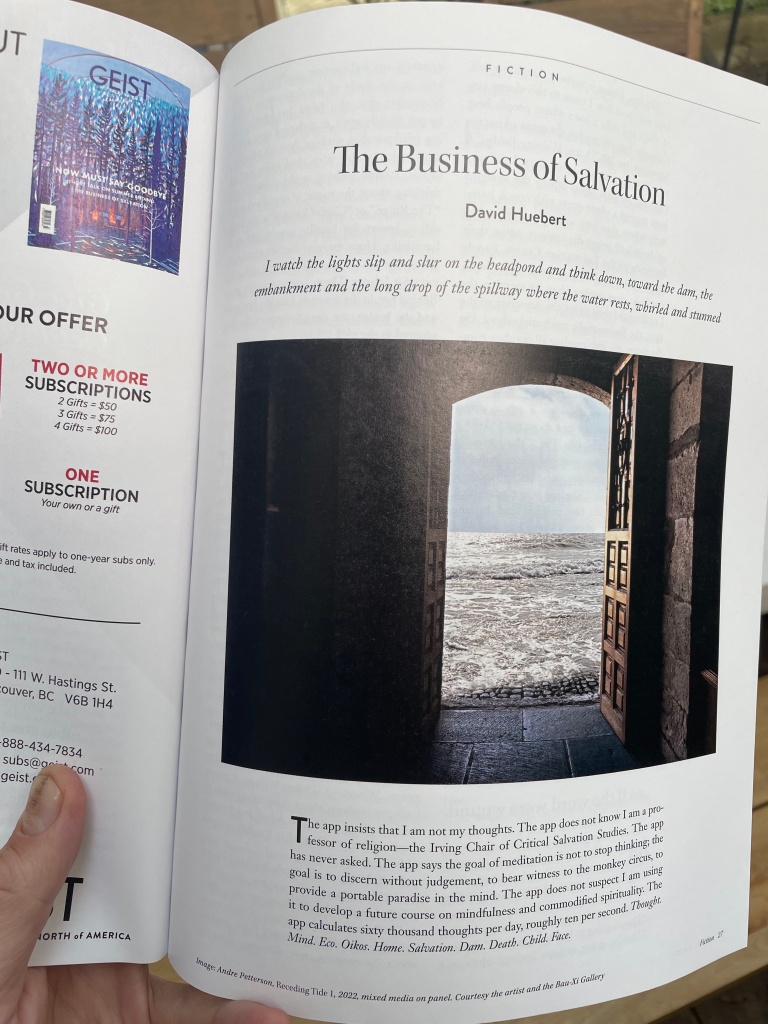
Secondly, my new story “The Business of Salvation” appears in Geist 124. The story is about dams, damnation, dislocation, the hypocrisies of academia, the salvationist strain in ecological thinking, and the curious work of living in the climate spasm. It’s my debut in Geist, a magazine I’ve long admired, and I’ve found myself in very good company alongside writers like Nick Thran, Jen Sookfong Lee, and Margaret Nowaczyk. I’m particularly excited about this story, as well, because I see it as the anchor story for a future collection. You can buy the issue online or on news stands at great shops like Book City and Atlantic News.
